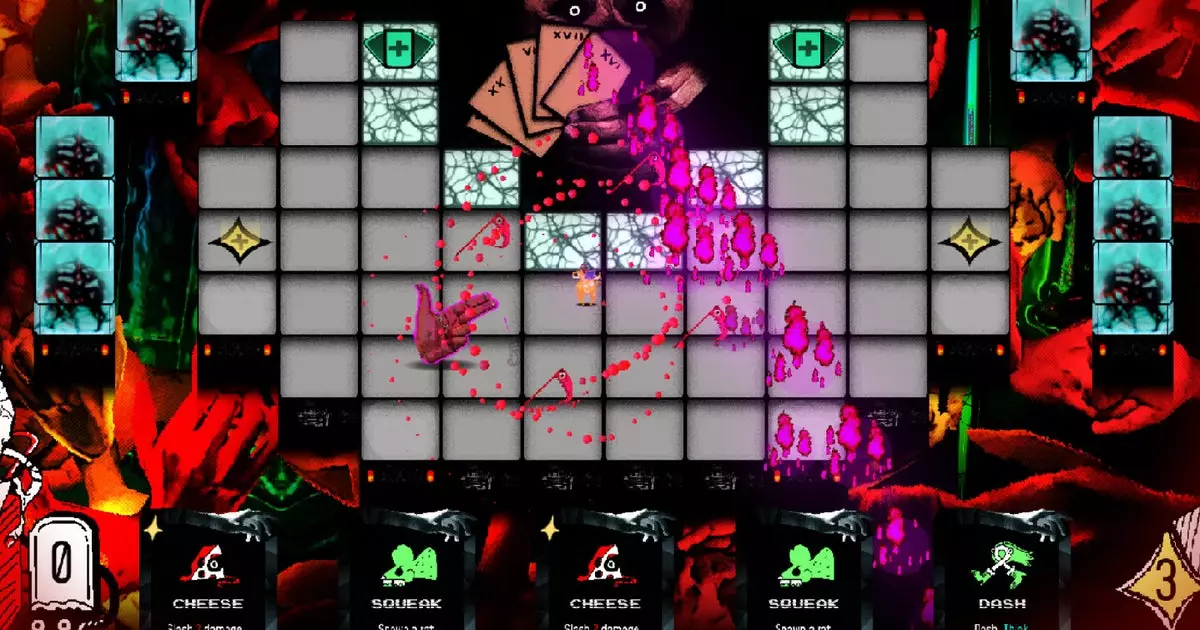The world of independent gaming is replete with innovative titles that challenge conventional gameplay concepts, and **LYMBUS: Incomplete Edition** from Happy Accident Studios is no exception. This roguelike bullet hell game melds card mechanics with fast-paced action, resulting in a unique experience that is as disorienting as it is engaging. Imagining a diabolical concoction of genres, the game’s pitch likens itself to a mix of absurdity and cerebral strategy, promising a chaotic venture that keeps players on their toes. The presentation evokes a sense of quirky humor and existential dread, positioning the game as both bizarre and fascinating.
The Gameplay Mechanics: A Card-Based Approach
At the heart of LYMBUS lies its innovative card system, which serves as the primary method for executing almost every action except movement. Players must embrace the art of deck-building while navigating a hostile landscape filled with relentless enemies. The burning of cards after use adds a layer of urgency, forcing players to think on their feet. With resources replenishing in real-time, every interaction must be weighed carefully. The duality of strategic deck preparation and spontaneous decision-making fosters a thrilling tension that drives the gameplay forward. Players must juggle combat and resource management seamlessly, ensuring that every bullet fired counts.
Narratively, LYMBUS employs a fascinating premise that taps into themes of memory, consciousness, and the fragility of the human experience. Set in the enigmatic year of 19XX, the backstory unveils a scenario where neuromechanical advances enable the mapping of human actions onto memory cards. However, a catastrophic failure leads to a mass blackout, plunging the world into an eerie state of uncertainty. This context raises profound questions about identity and human consciousness, as players traverse the collective unconscious in search of memories that may restore order. The incorporation of such themes allows LYMBUS to transcend mere gameplay mechanics, inviting players to ponder deeper aspects of the human condition.
Visually, LYMBUS presents a unique aesthetic that echoes its gameplay elements. The art style captures a whimsical yet unsettling ambiance, perfectly mirroring the chaotic nature of its combat. The choice of vibrant colors juxtaposed with dark themes establishes a surreal environment where the absurd and the profound coalesce. Every visual element—from the figures representing players to the intricately designed battlegrounds—serves to reinforce the game’s narrative and mechanical depth. The striking graphics are not merely ornamental; they engage players and immerse them further into the bizarre landscape of their unconscious mind.
As we anticipate the release of LYMBUS later this year, it’s evident that Happy Accident Studios has crafted an experience that demands both skill and introspection. The combination of quick reflexes, strategic thinking, and thematic depth positions LYMBUS as a memorable entry in the indie game scene. It promises not just to engage players in frenetic battles but also to stimulate contemplation about the very nature of existence. For those brave enough to dive into its chaotic depths, LYMBUS is poised to be a compelling journey into the unknown, challenging our perceptions of games and reality alike.


Leave a Reply